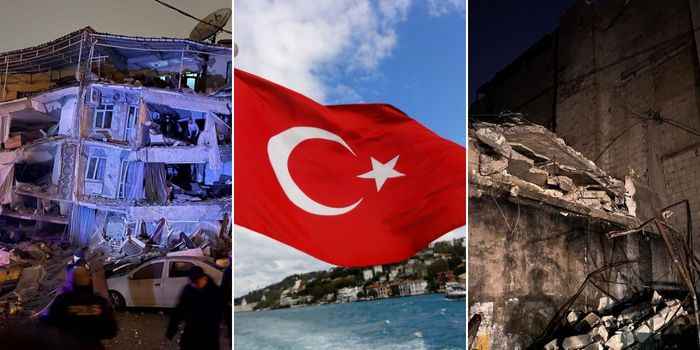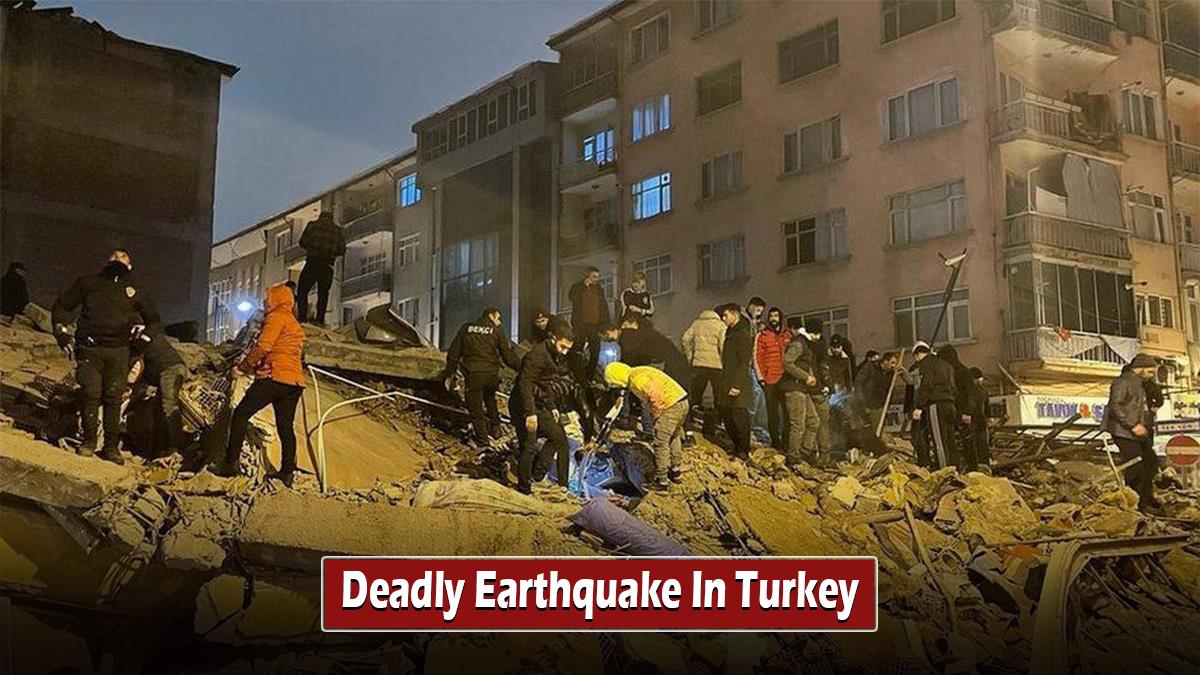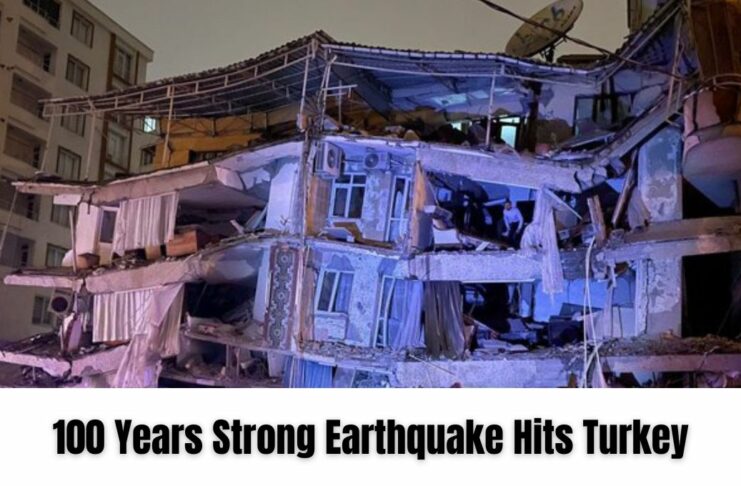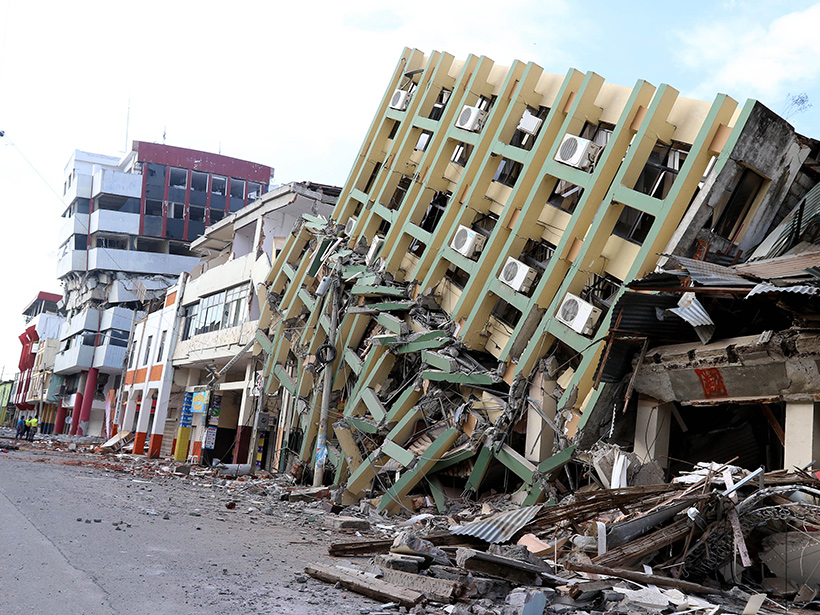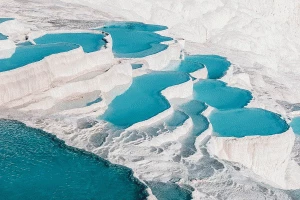- 2023
- 06
- Feb
At least 1,388 people have perished in Turkey and Syria due to a massive 7.8 magnitude earthquake that struck southern Turkey early Monday, wounding hundreds more in both countries.
According to the Syrian state news agency, at least 476 people have been killed across Syria, including 326 in Aleppo, Hama, Latakia, and Tartus, with at least 1,042 injured. According to official Syrian television, at least 139 killed were in Latakia.
Meanwhile, the "White Helmets" organization, formally known as Syria Civil Defense, claimed at least 150 dead and 350 wounded in opposition-held parts of northern Syria.
Where did the earthquake hit?
The epicenter of the earthquake, which happened at 4:17 a.m. (01:17 GMT), was in Kahramanmaras, a province of Gaziantep, approximately 33 kilometers (20 miles) from the city of Gaziantep, the capital of Turkey, where more than two million people live, including hundreds of thousands of Syrian refugees who fled their country during the conflict that started in 2011.
The US Geological Survey agency warned that the region has many buildings composed of brick masonry or fragile concrete, making them "particularly sensitive to earthquake shaking".
The quake occurred roughly 50 kilometers (31 miles) from the border of northwest Syria, where over 1.7 million internally displaced Syrians dwell in a cluster of camps in territory held by opposition organizations currently battling Syrian President Bashar al-regime.
There are several big government-controlled cities in the area, notably Aleppo, which has a dense population of about 2 million people.
Following the first tremor, more than 40 aftershocks were felt, including one with a magnitude of 6.7.
The earthquakes "spanned a distance of roughly 100km to 200km (62 to 124 miles) all over a huge fault line," Chris Elders, professor at Curtin University in Perth, Australia, told Al Jazeera, referring to the East Anatolian Fault, which runs through the southeastern part of Turkey.
What do we know about the dead?
The death toll continued to rise on Monday, with Turkey's Disaster and Emergency Management Agency reporting that at least 284 people had been killed in seven Turkish regions as of 10:35 a.m. (07:35 GMT).
On Monday afternoon, Turkey's President Recep Tayyip Erdogan said that the death toll had risen to at least 912 persons, with almost 6,000 wounded.
Rescuers were digging amid the wreckage of leveled buildings in Kahramanmaras and the neighboring city of Gaziantep. Building collapses were also recorded in Adiyaman, Malatya, and Diyarbakir.
According to Syrian state media, the death toll in government-held parts of Syria has risen to 320, with casualties recorded in Aleppo, Hama, Latakia, and Tartous.
Source: Turkey earthquake: Over 1,300 dead after powerful 7.8 magnitude tremor
On Monday, rescuers reported that more than 230 people had been hurt and at least 147 had died in rebel-held areas of northwest Syria.
"Large destruction and local catastrophe are unavoidable. "Rescue personnel is already in the region, and the number will grow in the next days," Martin Mai, a geophysics professor at Saudi King Abdullah University, told Al Jazeera.
"In the past, major earthquakes in Turkey have resulted in around 10,000 to 13,000 fatalities as a result of building type development, and the sheer magnitude of this catastrophe will also have significant economic consequences."
Is the rescue attempt going to be successful?
A winter snowfall that coated key roadways in ice and snow has delayed rescue attempts.
Aid workers have warned that the situation in northwest Syria is particularly bad.
"Right now, we have a catastrophe, in addition to really poor weather conditions and collapsed structures, and sadly, damaged hospitals," Mazen Kiwara, the Syrian American Medical Society's Middle East Regional Director, told Al Jazeera.
Source: Watch live: Rescuers work to free people after an earthquake hit Turkey and Syria killing hundreds
"We obtained preliminary information from our hospitals... The quantity of casualties has swamped the hospitals," he stated, adding that many hospitals had to be evacuated.
There were "five to seven deaths in a fetal hospital in Afrin," Kiwara claimed, "including one pregnant lady who perished away but our colleagues succeeded to bring out her baby alive. And he's in fantastic health right now."
What caused the earthquake to be so deadly?
According to Curtin University's Elders, the earthquake's depth of around 18km (11 miles) rendered the catastrophe exceptionally catastrophic.
While that "sounds fairly deep", he noted, however, "the energy that's released by the earthquake will be felt relatively near to the surface with considerably more intensity than if it was deeper in the crust".
Source: Turkey: deadly earthquake strikes near Syrian border
Naci Gorur, an earthquake expert from Turkey's Academy of Sciences, encouraged local officials to inspect the region's dams for fractures right away to avoid possibly catastrophic floods.
Turkey is mostly located on the Anatolian Plate, with two main faults running between the Anatolian Plate and the Eurasian Plate to the north of Turkey's land mass, and the East Anatolian Fault running along the Arabian Plate to the southeast of Turkey's territory.
Turkey is one of the world's most active earthquake zones due to its geographical position.
A magnitude 7.4 earthquake struck the Duzce area of northern Turkey in 1999, killing over 17,000 people, including over 1,000 in Istanbul, the country's largest city.
The earthquake on Monday was the worst since a magnitude 7.8 earthquake struck Erzincan province in 1939, killing over 30,000 people.
- tag:
- Turkey
- Earthquake


